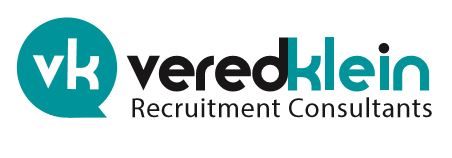When I started recruiting in the late 90s we were still posting jobs in newspapers and getting resumes faxed in. We would walk in every morning to a pile of resumes next to the fax machine, looking over each resume that came in and hoping that it was a good match for the jobs we were asked to hire…
Saying that we’ve seen tremendous changes since then is an understatement. Why is it then that many of the job searching routines are stuck in the 90s? How can you modernize your job search, bring it to 2021 and take advantage of the opportunities job seekers have now to make their job search successful?
As we enter a new year, here are a few tweaks you can make to your job search right now:
Generic vs Customized Applications
When job seekers were responding to newspaper Wanted Ads they didn’t have much info to go by. All “Architectural Technologists” jobs looked pretty much the same so sending the same resume to all jobs made sense. Looking at the average job posting these days you have ample information to rely on. Starting with the company’s website and online presence where you can learn more about the culture, projects and news and to the details of the job itself. Firing off the same resume to all job applications, as well crafted as it may be, won’t get the results you want. It’s been said many times before, but I’ll say it again, your resume should address the requirements of the job you are applying for. Your portfolio should highlight projects that are relevant to the projects the employer specializes in. Make it easy for the recruiter to connect the dots.
One Dimensional Connections vs Networking
Pre Social Media days the players in the job application process were “Hiring Manager/Recruiter” and “Job Applicant”. These were one dimensional roles. We didn’t know anything about the applicant that they didn’t include in their resume. We had no information about their opinions, passions, and interests. At the same time, candidates didn’t know anything about the person reading their resume.
To take advantage of the information-rich world we live in today, connect with hiring managers on facebook and Linkedin groups, follow up and connect directly on Linkedin, attend networking events (virtually, for now). Use these avenues to expand your job search beyond just applications. Find hiring managers with values and interests that align with yours. At the same time, understand that you have an opportunity to be seen as more than just “the applicant”. Use these platforms to showcase your expertise and passion (keeping things professional, of course)
Resume Etiquette vs. Value
Should your resume be one page or two? Should you start with your experience or education? Should I attach a cover letter or write it in the body of the email? There are thousands of articles out there to cover that. Having an easily readable and complete resume is important but let’s make it clear, a resume is only good as long as it shows the hiring manager/recruiter what value you can bring to the role. If your resume reads like a generic job description than it’s not showcasing your value. Think about projects you completed successfully, problems you solved, suggestions you have made. Were you involved in any activities beyond “your job” that helped the company as a whole? (were you involved in hiring, in improving technology, in process improvements). Don’t spend 90% of your time on choosing the right wording on a cover letter that sounds just like everyone else. Your time is better spent showcasing YOU.
Blasting Applications vs Staying Organized
We use technology to stay organized in almost every aspect of our lives. Do the same for your job search. The humble spreadsheet is a good starting point for staying organized. You can use a spreadsheet to track absolutely everything you’re doing from jobs you’ve applied to, interview status, follow up, and more.
Use Google Drive so you can access your files from anywhere and never have to say to a hiring manager “I’ll send it over later when I get home”.
Save Job Descriptions so you can refer back to them when you get a call about a job you applied for 2 weeks ago.
Take it to the next level and use a Job Application Tracking software that is made to keep your job search organized and track contacts, notes, dates, tasks, job descriptions, salaries, locations, company data and more. It’s like a CRM for your job search.
Cliche vs Thoughtfully Authentic Interview Answers
Practicing perfect answers to cliche questions is truly a thing of the past. I hope you don’t get the “What is your weakness?” question and more so I hope your answer is not “I’m a perfectionist”.
Rather than practicing answers I encourage you to practice your career stories. These are examples of the above mentioned achievements where you made a significant contribution to your job. It’s ok to be strategic and think about examples and stories relevant to the job you are interviewing for. It’s ok to practice the stories so that you feel more comfortable telling them in the interview. Be true to yourself, present YOUR strengths so that you don’t just GET the job, you make a meaningful career move.
